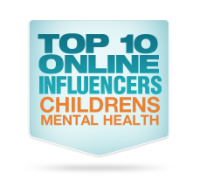 Editor’s note: Today’s post from Gillian Marchenko is co-authored by Gillian’s husband (Sergei), a pastor for eleven years and husband to a wife with major depressive disorder for over a decade.
Editor’s note: Today’s post from Gillian Marchenko is co-authored by Gillian’s husband (Sergei), a pastor for eleven years and husband to a wife with major depressive disorder for over a decade.
As a couple in ministry and a family who battles major depressive disorder – essentially people living on both sides of the coin – we want to acknowledge that many churches have made progress in the area of mental illness. There is more work to be done, but we praise God that he continues to open the eyes of many believers in the body of Christ to this crucial topic.
Here are five steps churches can take to help members or attendees experiencing depression…
- Realize that depression IS a mental illness and deserves to be taken seriously and treated like other ‘visible’ illnesses. According to the National Alliance on Mental Illness,
Depression is more than just feeling sad or going through a rough patch. It’s a serious mental health condition that requires understanding, treatment and a good recovery plan. With early detection, diagnosis and a treatment plan consisting of medication, psychotherapy and lifestyle choices, many people get better. But left untreated, depression can be devastating, both for the people who have it and for their families.
Some churches are under false assumptions that depression and other conditions are sin issues or simply a lack of spiritual discipline that one can overcome without professional intervention.
- Try to learn to discern (to the best of your ability and with prayer) what may be mental illness from other struggles in life. Both are important. Both require support, guidance, and prayer, but your approach to counseling individuals with mental illness will be different. In addition to support, guidance, and prayer, it is prudent to advise someone to seek help from a medical professional and to consider finding a therapist with expertise in an area that may be beyond, or in addition to, your counsel.
- Utilize resources. There are several Christian and secular organizations that can help you better understand mental illness including The Grace Alliance, Fresh Hope, NAMI, and Key Ministry. Many Christian organizations encourage medical, physical, and spiritual therapy.
- Don’t leave people with mental illness at the fringes of your church. Sometimes when we don’t know what to do, it is easy to do nothing. The goal of every church should be to encourage believers to grow in Christ. 1 out of 4 people have some kind of mental illness. There will be people in this category in your church this next Sunday. Reach out to them. Remember that God has gifted them for his purpose alone and those gifts should be utilized and encouraged in the church. Stay committed. Walk alongside them instead of waiting for a crisis to help.
- Many individuals with mental illness benefit from a wholistic approach to functionality and health, including professional help, medication, community support, and spiritual encouragement. The church is the type of community uniquely designed by God to help provide multifaceted wholistic healing for those affected with mental illness.
***********************************************************************************************************
 In Still Life, Gillian Marchenko continues her description of depression: “I must keep still. Otherwise I will plunge to my death. ‘Please God, take this away,’ I pray when I can.”
In Still Life, Gillian Marchenko continues her description of depression: “I must keep still. Otherwise I will plunge to my death. ‘Please God, take this away,’ I pray when I can.”
For Gillian, “dealing with depression” means learning to accept and treat it as a physical illness. In these pages she describes her journey through various therapies and medications to find a way to live with depression. She faces down the guilt of a wife and mother of four, two with special needs. How can she care for her family when she can’t even get out of bed? Her story is real and raw, not one of quick fixes. But hope remains as she discovers that living with depression is still life.
Still Life is available here for pre-order from IVP Press.




Reblogged this on Cornerstone Church Guide.
LikeLike